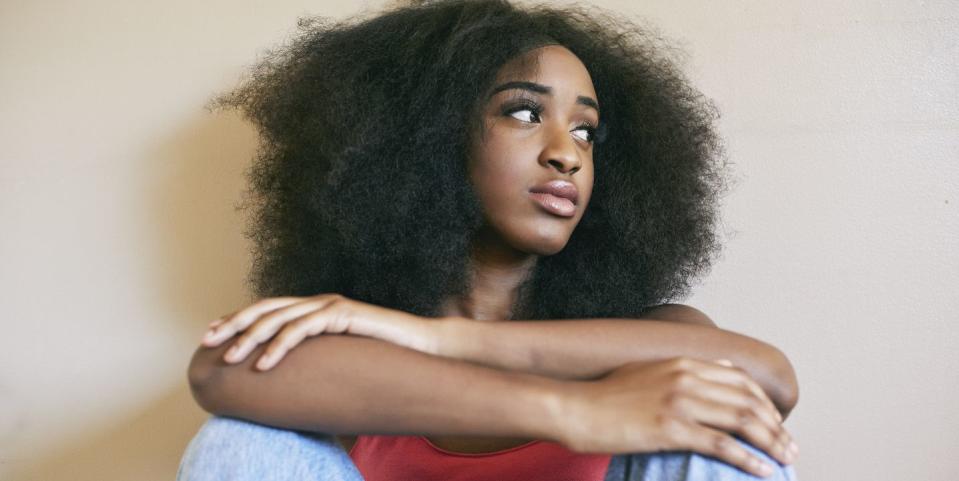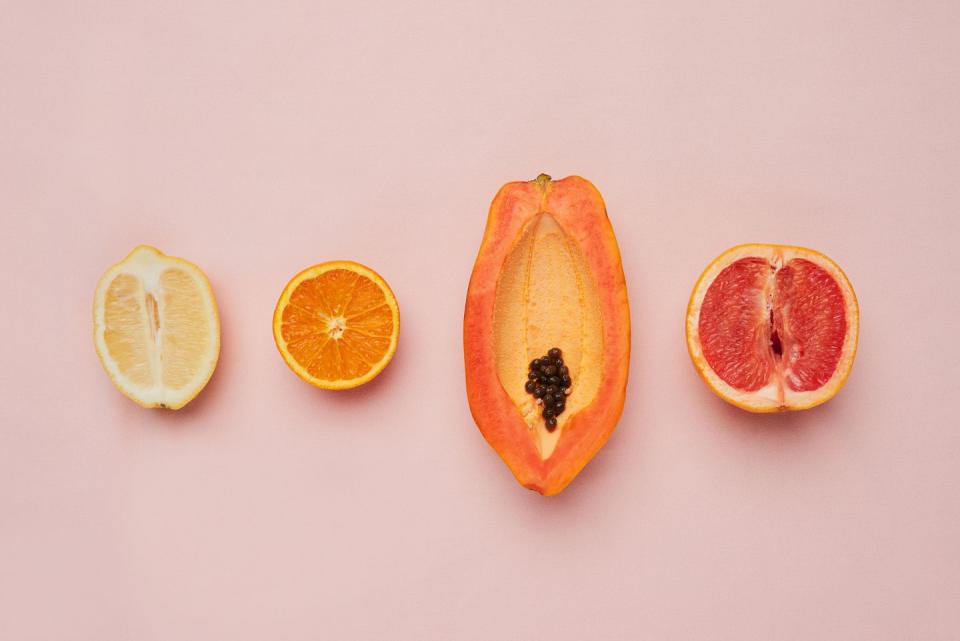What is vulvodynia and can it be treated?

Suffering from pain, irritation or unexplained discomfort in or around your vagina? There’s a chance it could be vulvodynia. Vulvodynia can be a long-term chronic problem that affects everything from sitting down to sexual intercourse. However, there are a number of things you can do to help relieve the pain.
GP Dr Roger Henderson looks at vulvodynia symptoms, diagnosis and treatment options.
What is vulvodynia?
Vulvodynia is a condition affecting women which, until quite recently, wasn’t recognised as a medical condition.
Vulvodynia is unexplained persistent pain, burning, stinging or irritation of the vulva (the entire external female genitalia), which includes the labia, vaginal opening and clitoris. There are two types of vulvodynia pain:
• Generalised vulvodynia
This refers to pain in different areas of the vulva at different times, and is sporadic. It can be classified as provoked by touch (the most common type) or unprovoked when it is present even with the vulva not being touched. Some women have a mixture of provoked and unprovoked vulvodynia, which is known as a mixed type.
• Localised vulvodynia
This is pain in one area, is often worsened by touch or pressure like intercourse or sitting and includes clitorodynia where only the clitoris is affected.
Vulvodynia symptoms
The main symptom of vulvodynia is an intense pain in the vulva area, but some women have reported that the pain also extends into the buttocks and the inner thighs. The type of pain caused by vulvodynia can vary between individuals, ranging from a sore, stinging feeling to an unbearable burning pain.
If there is vulval pain caused by a known medical condition, this is called ‘vulval pain due to a specific disorder’ rather than the term vulvodynia. Vulvodynia is therefore a diagnosis of exclusion, which is reached when all other possibilities have been excluded.

Vulvodynia causes
Unfortunately we are not yet able to scientifically prove what causes vulvodynia, it is thought to be caused by damage to the nerves, which can be caused by childbirth or vaginal thrush, for example.
However, there are risk factors that appear to be present in almost half of the women affected by it. These include:
Vulvodynia Diagnosis
If you think you may have vulvodynia or are experiencing vulva pain, make an appointment with your doctor so they can refer you to a specialist for an accurate diagnosis. It is also important to rule out other conditions before treating vulvodynia.
To assist with a vulvodynia diagnosis your doctor may carry out the following examinations:
Ask about your medical and sexual history.
Carry out a pelvic exam.
Take a sample of cells to test for an infection.
In most cases, there is little abnormal to find on examination and swabs may be taken from the area to rule out infection.
❗ Vulvodynia pain can last for years so do not suffer in silence. Help is available, but it’s important to seek advice as early as possible.
Vulvodynia risk factors
Vulvodynia affects women of all ages and ethic backgrounds, with a lifetime prevalence of just under nine per cent.
It is a chronic condition, and due to the sensitive nature of the subject, women often feel embarrassed and so suffer with it for a long time before seeking help, meaning that it can be years before a diagnosis is made and appropriate treatment is administered.
Vulvodynia treatment
There is still lots more research to be done with regard to the treatment of vulvodynia and although there are a number of treatment options available, there are few high-quality controlled clinical trials available that show how effective these are.
The best approach appears to be a multi-disciplinary one that includes psychological help as well as pain management techniques and medication.
There are some simple vulvodynia home remedies you can try that may reduce discomfort:
Reduce irritation of the vulval skin
Avoid perfumed soaps, vaginal hygiene products and douches.
Don’t use scented toilet paper or wipes.
Use plain water or an emollient soap to wash your vulva and always wash after you’ve had sex.
Wash your underwear in a mild washing powder, avoid fabric softener and use an extra rinse cycle.
Do not wear underwear at night.
Opt for cotton underwear rather than synthetic underwear during the day.
Use tampons and sanitary pads made from organic cotton or look for pads that have a cotton top sheet.
Avoid swimming pools that have lots of chlorine, apply some petroleum jelly to your vulva before you swim and change out of wet swimwear as soon as you get out of the water.
Reduce pressure on your vulva
Experiment with different chairs to find the most comfortable sitting position.
Try sitting on a doughnut shaped cushion.
Avoid riding a bike or horse riding.
Avoid tights and tight fitting trousers.
Ease vulval pain
Sit in a lukewarm bath.
Place a cool pack or ice wrapped in a cloth close to your vulva.
If a cold compress doesn’t help, then try a warm one – use a hot water bottle or a heat pack.
Use relaxation techniques - being relaxed will help ease pain.
Research the condition, as this can reduce stress and anxiety significantly.
Vulvodynia medication
Which medicines can be used in the treatment of vulvodynia?
• Lubricants for vulvodynia
It’s important to seek advice from your doctor or gynaecologist first, but some women find over the counter lubrication can provide relief as can local anaesthetics such as 2% lidocaine gel or 5% lidocaine ointment. These can be applied 20-30 minutes before intercourse and washed off before penetration.
• Steroid cream for vulvodynia
Using a potent steroid cream for 10 days, followed by medium potency steroid cream twice a week has also been found to sometimes reduce sensitivity to pain.
• Painkillers for vulvodynia
Normal painkillers, unfortunately, appear to have little or no impact on reducing the discomfort of vulvodynia.
Other treatments are often considered that are usually used in reducing nerve-based pain, such as tricyclic antidepressants and gabapentin. However, the evidence that these provide consistent or significant relief is very limited.
The emotional impact of vulvodynia
Women affected by vulvodynia often suffer chronic stress and low mood as a consequence, with a knock-on effect on their relationships and psychosexual health. Chronic pain has been shown to impact relationships, mental health and also sex drive, so seek help from your doctor or gynaecologist as soon as possible.
❤️ If you are struggling with the emotional impact of vulvodynia you may also benefit from joining a vulval pain support group.
Therapy for vulvodynia
The emotional impact of vulvodynia and chronic pain should not be underestimated, so it might be worth exploring different treatment avenues including therapies.
In a small number of cases, vulvodynia can be linked to trauma, in which case mindfulness-based Cognitive Behavioural Therapy (CBT) can be beneficial in helping improve sexual satisfaction and reduce symptoms.
Sexual or relationship counselling may also be required, including advice on sexual lubrication and positions and how to communicate effectively with your partner.
Physiotherapy can also be used to help relax the pelvic floor muscles and provide relief.
Vulvodynia surgery
In severe cases, where life quality is badly affected and where all other treatment options have failed, surgery may be considered. However, this is seen as something of a last-resort option and is never undertaken lightly.
Surgery is only appropriate for provoked vulvodynia where the vestibule is the affected area and is known as a modified vestibulectomy. Its aim is to remove any hypersensitive tissue and replace it with normal vaginal mucosa.
❗For further help and support visit Vulval Pain Society, a charity providing confidential support and advice for women suffering from vulval pain conditions.
Last updated: 25-11-2020
You Might Also Like

